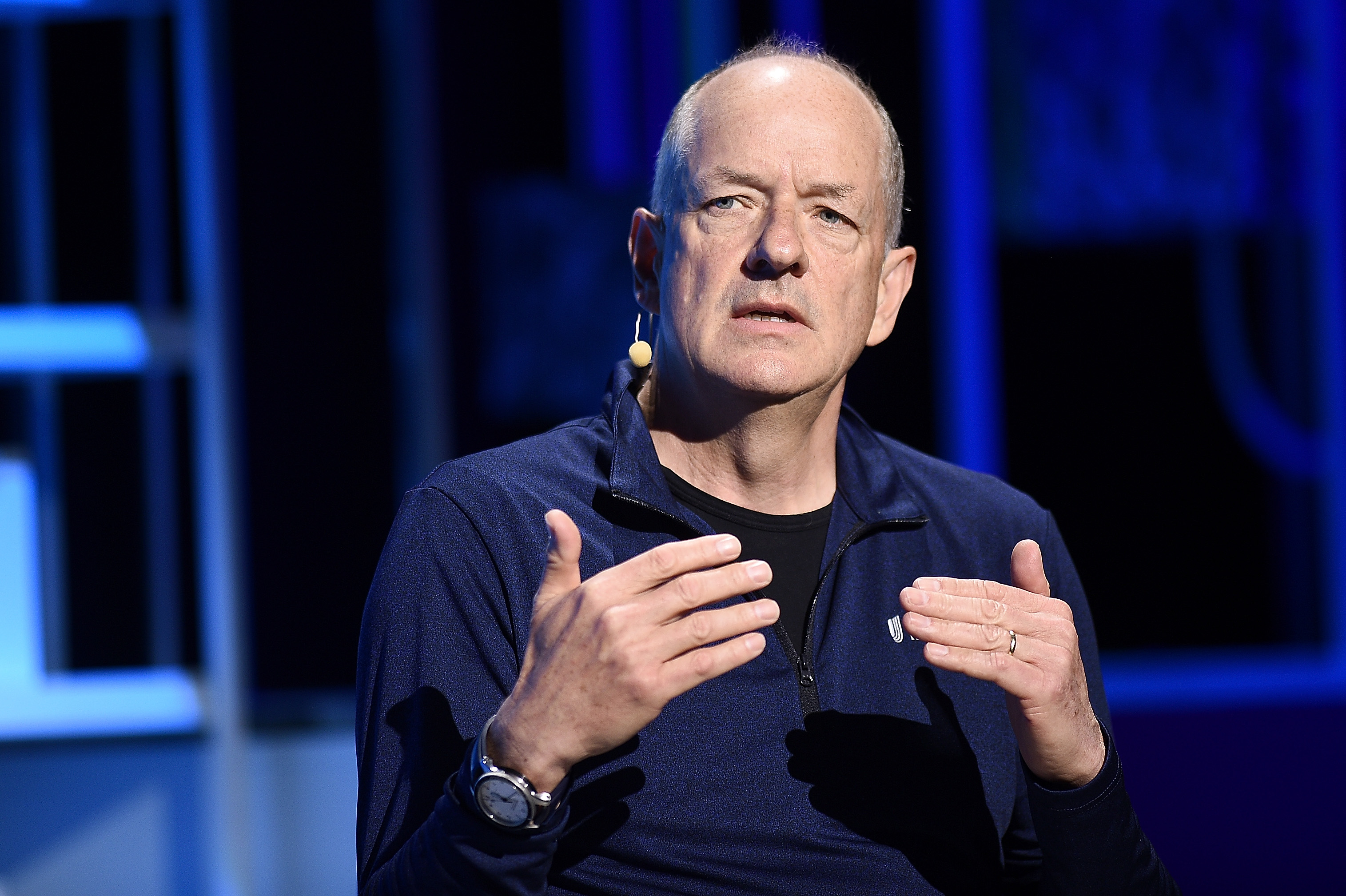UnitedHealth grew very big. Now, some lawmakers want to chop it down.

UnitedHealth grew very big. Now, some lawmakers want to chop it down.
After becoming pregnant, Alexandra Day, a 31-year-old consultant living in South Carolina, sought out neonatal genetic testing that was covered in her health insurance policy. But her insurer, UnitedHealthcare, balked at paying for the December 2022 test, claiming there was no proof Day needed it, and billed her $3,900, according to documents reviewed by The Washington Post.
Day succeeded in persuading the health-care colossus to reduce her bill after weeks of telephone calls, letters and paperwork, ultimately paying $650 and abandoning her efforts to try to lower the bill further. The episode left a bitter taste, particularly after UnitedHealthcare became locked in a contracting fight and stopped covering care at South Carolina’s largest not-for-profit health system, threatening Day’s access to longtime physicians.
“They’ve made it so complicated that nobody can use this system,” Day said, drawing a lesson from her work trying to simplify companies’ supply chains. “Bigger is not always more efficient. Bigger is more convoluted.”
In health care, no one is bigger than UnitedHealth Group, the nation’s largest private health insurer and largest employer of physicians. The nearly $400 billion umbrella company also helps run hospitals, has rapidly acquired outpatient surgery centers, is expanding into home health services — and fell victim to a cyberattack this winter that brought the U.S. health-care system to its knees and has prompted congressional hearings this week.
Tens of millions of Americans regularly interact with one or several of the company’s approximately 2,200 subsidiaries, including middlemen that handle payment processes and pharmaceutical prescriptions, often without realizing it. UnitedHealth ranks as the nation’s fourth-largest company by revenue this year, just behind Apple and ahead of tech giants Alphabet and Microsoft. In many parts of the country, a patient could be a UnitedHealth customer from cradle to grave, starting with obstetric care and ending with hospice services.
The company says its acquisitions have helped it “coordinate and align incentives” and deliver what industry leaders refer to as “value-based care,” with providers working together to achieve a shared goal of high-quality, low-cost health care.
“The U.S. health system remains deeply fragmented,” UnitedHealth said in a statement. “We are organized to help reduce that fragmentation … enabling us to focus on the whole patient.”
Critics point to UnitedHealth’s $22 billion profit last year, saying the company’s focus is on benefiting itself while adding costs for consumers.
“They’ve grown too big for this country’s good, and for their own good,” said Don Berwick, a Harvard-affiliated physician who oversaw Medicare and Medicaid during the Obama administration. “Success for UnitedHealth is return for investors.”
For decades, UnitedHealth’s staggering growth attracted relatively little Washington scrutiny, particularly compared with drugmakers repeatedly summoned to Congress to testify on price increases. Federal antitrust officials also traditionally focused on blocking companies from gobbling up direct competitors, known as horizontal integration, while being more permissive of the strategy practiced by UnitedHealth, which involves buying a stake in different sectors of the same industry, known as vertical integration.
But lawmakers and regulators are beginning to frame UnitedHealth’s sweeping operations as an economic and national security concern. Exhibit A: the February cyberattack on a UnitedHealth subsidiary that processed more than 40 percent of the nation’s medical claims. The hack froze payments, preventing many hospitals, doctors and other providers from being paid for weeks. It also interfered with patients’ prescriptions and caused industry paralysis still being repaired today.
“If you have a third of the health system’s dollars going through one company’s leaky pipes, that’s not an antitrust problem. It’s a national security problem,” said Jeff Goldsmith, an industry analyst who estimates that more than 5 percent of U.S. gross domestic product flows through the company’s systems every day.
UnitedHealth leaders have said hackers “used compromised credentials” to access its subsidiary Change Healthcare on Feb. 12 and spent the subsequent nine days moving within Change Healthcare’s systems and stealing data. A group that claimed responsibility and demanded ransom payment has said it stole sensitive information linked to tens of millions of patients.
House lawmakers this month held a hearing reviewing the cyberattack, and the Senate Finance Committee and the House Energy and Commerce Committee summoned UnitedHealth CEO Andrew Witty to testify Wednesday. It will be the first time in 15 years that the company’s CEO has testified on Capitol Hill, according to the Senate Historical Office.
Sen. Ron Wyden (D-Ore.), who chairs the Senate panel set to grill Witty, said it’s “high time” for the CEO to answer lawmakers’ questions about its operations, such as the company’s frequent use of a practice known as prior authorization, in which physicians must submit additional paperwork to justify their treatments and prescriptions, and patients such as Day are hit with bills they are not expecting.
“I have very serious questions about UnitedHealth’s size and its role in increasing health-care costs,” Wyden added. “We get regular stories about how UnitedHealth is delaying and denying care.”
The cyberattack put a spotlight on UnitedHealth’s $13 billion purchase of Change Healthcare in 2021, part of more than $60 billion of acquisitions in the past decade. That’s more than triple what it spent on acquisitions the previous decade, according to transactions logged by data-provider FactSet.
Lawmakers in both parties said they’re unhappy about so much of America’s health system running through a single organization, making thousands of hospitals and doctors vulnerable to a single point of failure.
“It needs to be busted up,” Rep. Buddy Carter (R-Ga.) said at the congressional hearing on Change Healthcare this month, citing his frustrations as a practicing pharmacist who dealt with UnitedHealth and its subsidiaries.
UnitedHealth is “so damn big,” added Sen. Elizabeth Warren (D-Mass.), singling out the company’s $227 billion Optum division, which employs more than 90,000 physicians. “One in every 10 doctors in America has been sucked into the Optum system. Most patients probably don’t know that their doctors are working for a giant corporation bent on maximizing profit, instead of working for themselves,” Warren said.
Federal regulators opted not to fight many of UnitedHealth’s acquisitions as it grew from a regional Minnesota operator in the 1970s to a national conglomerate in the 2000s. Biden officials have adopted a more aggressive approach. The Justice Department challenged UnitedHealth’s acquisition of Change Healthcare — though a Trump-appointed federal judge dismissed the case — and has launched a review of UnitedHealth’s physician group purchases and other practices, according to three people who spoke on the condition of anonymity to discuss a federal probe.
The Justice Department declined to comment.
Speaking to a conference of emergency physicians in April, Jonathan Kanter, the Justice Department’s top antitrust enforcement official, did not mention UnitedHealth by name, according to two physicians and another attendee. But Kanter repeatedly criticized the playbook followed by UnitedHealth, such as how health insurers’ strategy to purchase physician practices has allowed them to circumvent federal rules intended to force insurers to spend more money on patient care.
“We talk about value-based health care,” Kanter said, invoking the mantra used by UnitedHealth and other industry players, according to the three attendees. “How about we bring values back to health care?”
UnitedHealth has worked to head off criticism on Capitol Hill. The company has spent at least $49 million on lobbying efforts during the past decade, employing more than 130 lobbyists — including former Senate majority leader Trent Lott (R-Miss.), former House majority leader Richard A. Gephardt (D-Mo.) and nine other former lawmakers — to defend its interests in Washington, according to congressional records and a database maintained by OpenSecrets, a nonpartisan organization tracking money in politics.
UnitedHealth also hired Danielle Gray, a former senior Obama White House and Justice Department official, to oversee its Washington operations beginning this month.
The company declined to make Witty available for an interview. In this month’s earnings call, the CEO said UnitedHealth would continue seeking opportunities to acquire businesses even as he minimized his company’s role and influence.
“We’re a comparatively small part of the $5 trillion U.S. health system,” Witty said.
‘Too big to fail?’

UnitedHealth Group, the umbrella company that owns the nation’s largest health insurer and is the nation’s largest employer of physicians, is moving its headquarters to its Optum campus in Eden Prairie, Minn.
The juggernaut now known as UnitedHealth Group traces its origins to a small Minnesota business, Charter Med, founded 50 years ago to handle physicians’ business functions at a fledgling health maintenance organization.
The company then began operating and purchasing other HMOs, incorporated as UnitedHealth Group, and embarked on a steady run of acquisitions propelling its ascent on Fortune’s list of America’s largest companies. UnitedHealth ranked 303rd in 1995, 40th in 2005 and sixth in 2016 — its first year in the top 10.
Today, UnitedHealth provides health coverage to about 50 million patients through its UnitedHealthcare insurance division. It operates one of the largest pharmacy-benefit managers, OptumRx, which helps determine what consumers pay for prescriptions. Its smallest, but most profitable, segment presides over the financial pipework — such as processing medical claims — that much of the health system relies on, as many discovered after the February cyberattack.
Amanda Starc, associate professor of strategy at Northwestern University’s Kellogg School of Management, said UnitedHealth’s mergers can provide “genuine economic benefits,” such as streamlining how health care is delivered and cutting out middlemen — so long as those mergers don’t lead to monopolies.
“Competition is the best kind of disinfectant” for high costs and other economic problems, Starc said.
UnitedHealth has turned some laws to its advantage. The 2010 Affordable Care Act tried to crack down on insurance companies’ profits by requiring them to spend at least 85 percent of patients’ premiums on patient care. But the rule inadvertently gave insurers such as UnitedHealth an incentive to buy physician groups and other pieces of the health-care system: It keeps the money collected by their health insurance divisions within their own systems.
“You can acquire providers and essentially pay yourself,” said Christopher Whaley, a health-care economist at Brown University. “It provides a disincentive to really care that much about prices and spending growth.”
UnitedHealth’s broader growth has stunned industry observers who remember when U.S. health care was dominated by small physician practices, not-for-profit insurers and other institutions slowly going extinct. “I never could have imagined that health care would become so profit-motivated and monetized,” said Clif Gaus, a former senior health policy official in the Nixon, Ford, Carter and Clinton administrations.
But the company’s size proved crucial when the government turned to UnitedHealth’s banking division early in the coronavirus pandemic to dispense emergency funds to medical providers desperately needing cash infusions.
UnitedHealth executives have acknowledged that its sprawling operations can cause problems. Pressed by the Senate Aging Committee about why UnitedHealth lagged on reimbursing providers who administered coronavirus vaccines, a senior company official blamed “the company’s size and numerous claims systems,” Sen. Bob Casey (D-Pa.), the committee’s chairman, said in a January 2022 statement.
Gaus, who became a senior executive in the health insurance industry in the 1990s and currently works with hospitals and doctors, said he is worried that too much of the health system runs through UnitedHealth.
“Is UnitedHealth too big to fail?” he asked. “Regulators and politicians should be thinking about that kind of question.”
Quiet watchdogs

UnitedHealth Group CEO Andrew Witty is slated to appear Wednesday before House and Senate committees.
Regulators have thought about that question. But they have tended to balk at challenging UnitedHealth — or lose when they do.
During the past two decades, federal antitrust enforcers have reviewed at least seven UnitedHealth deals, including its $4.9 billion purchase of insurer Oxford Health in 2004, its $4.3 billion acquisition of DaVita Medical Group in 2019 and its $5.4 billion purchase of national at-home provider LHC Group in 2022. Though the government obtained concessions in some cases, the outcome has been largely the same: Deals went through, and UnitedHealth got bigger.
The Justice Department is scrutinizing UnitedHealth’s proposed $3.3 billion takeover of home-care provider Amedisys.
The government’s struggles to crack down on UnitedHealth — sometimes because federal judges side with the company’s argument that its mergers lead to efficiencies — show the need for Congress to consider stronger laws, said Hayden Rooke-Ley, a senior fellow at the American Economic Liberties Project, an antitrust-focused nonprofit.
One option would be to enact legislation prohibiting corporate insurance companies like UnitedHealth from owning or operating physician groups, said Rooke-Ley, who detailed the strategy and other approaches in a new white paper.
“What we are seeing now is there are really significant risks of letting a company like United own a physician group, ambulatory surgical centers, a mail order pharmacy, home health providers … and claims processing and revenue cycle management,” Rooke-Ley said.
It’s not clear whether Congress has the appetite for its own drawn-out fight with UnitedHealth. The company is a major contributor to key politicians, such as Sen. Mike Crapo of Idaho, the top Republican on the Senate finance panel that will hear Witty’s testimony Wednesday, and who has received more than $165,000 from UnitedHealth staff and its political action committee across his career, according to OpenSecrets. That makes UnitedHealth the single largest contributor to Crapo, according to the database.
Amanda Critchfield, a spokeswoman for Crapo, wrote in an email that campaign contributions would not “affect his ability to ask tough questions.”
Another top recipient of funds is Sen. Amy Klobuchar (D-Minn.), who has received more than $172,000 in UnitedHealth-linked contributions during her career, according to OpenSecrets. For the past 11 years, Klobuchar has chaired or served as the top Democrat on a Senate panel that reviews antitrust concerns, developing a reputation as a fierce critic of consolidation. But Klobuchar has offered muted criticism of the corporate giant headquartered in her state. While her panel has examined hospital consolidation, high drug prices and health insurer deals — calling on the CEOs of UnitedHealth’s rivals, Aetna and Anthem, to answer questions in 2015 about their planned merger — Klobuchar and her colleagues have never summoned UnitedHealth to testify on its operations.
Her 624-page book, “Antitrust,” published in 2021, includes a passing reference to UnitedHealth in its text and a second reference in a footnote; comparably large companies are invoked more frequently, with Amazon, Apple and Google collectively mentioned more than 500 times.
Jane Meyer, a spokesperson for Klobuchar, wrote in an email that the senator was the “number one champion in the U.S. Senate” fighting consolidation and has pursued “far-reaching antitrust reforms that would directly impact UnitedHealth,” such as securing more funding for enforcement. Meyer also said Klobuchar had not taken funding from UnitedHealth’s political action committee in five years, and that Klobuchar’s panel will hold a hearing in June to examine the benefits of competition, with the cyberattack on Change Healthcare as a planned example of the risks of consolidation.
Cyberattack brings new pressure

Officials from the Health and Human Services Department monitor the cyberattack on Change Healthcare from the agency’s special operations center that responds to pandemics and hurricanes.
The Change Healthcare crisis has provided a new window for Congress to revisit old questions about UnitedHealth, with constituents telling lawmakers they’re still suffering payment problems, and doctors and hospitals that bristle at the company’s policies sensing an opportunity to attack.
In recent interviews, federal officials shared their frustrations about UnitedHealth’s lack of transparency and initially stringent loan terms for providers scrambling to meet payroll after the cyberattack paralyzed payments Feb. 21. Analysts estimated that doctors, hospitals and other providers were collectively losing as much as $1 billion a day.
Officials at the Health and Human Services Department in early March began rushing advance payments to providers, helping stabilize some organizations, even as other physicians and medical providers warned they remained in dire financial straits.
Working from the round-the-clock operations center that responds to pandemics and hurricanes, officials leading the government’s Change Healthcare response feared the nation was inching toward a tipping point at which health-care organizations would be forced to furlough staff or cancel procedures, with patients turned away in droves.
Seeking to pressure UnitedHealth to provide more emergency funding to providers, HHS officials arranged a March 12 virtual session where Witty had to first listen to a parade of medical providers explain their financial woes.
Lawmakers put pressure on UnitedHealth, too. Sen. Maggie Hassan (D-N.H.) said she reached out to the company in early March after five hospitals in her state warned they were struggling to keep their doors open.
“Some of them had seen a 98 percent reduction in their cash flow,” Hassan said. “And what I heard from UnitedHealthcare was, well, we’ll give them these loan terms that made no sense under the circumstances.”
Hassan said UnitedHealth relaxed its loan terms for all providers after she spoke twice with Witty.
Many medical providers said they patched together funding to help them stay open. More than half of physician practices that responded to an informal survey by the American Medical Association said they had to tap personal savings to keep operations going.
As a result, the crisis ended up largely hidden from public view, and many patients are likely unaware of how close their providers came to financial disaster in March.
“From a response perspective, I take that as a win,” HHS Deputy Secretary Andrea Palm said.
UnitedHealth has said that it appropriately managed the crisis and that outages are largely resolved. The company launched a website to share information, paid for a multimillion-dollar ad campaign to raise awareness of its financial-assistance programs and said it had advanced $6.5 billion in emergency payments to providers as of April 22.
While some critics have argued that UnitedHealth’s size and deep pockets made it a target for hackers seeking a ransom, Witty offered a different perspective on this month’s earnings call.
“This cyberattack has unfortunately created another true validation” of the merger, Witty told financial analysts. “It meant [UnitedHealth] was in position to resolve this much more quickly than I think would ever have been imaginable” if Change Healthcare had remained independent.
Goldsmith, the industry analyst, said he remains disappointed with UnitedHealth’s response to the cyberattack.
“It’s a vast, wealthy enterprise with a talented management,” Goldsmith said. “But if this was a test, they flunked.”
A ‘first step’ in Congress

When pregnant, Alexandra Day sought out neonatal genetic testing covered in her health insurance policy. She was surprised when UnitedHealthcare balked at paying.
Witty has been privately meeting with senators in Washington since the Change Healthcare crisis began, six senators or their staff told The Post, trying to fend off scrutiny.
“We chatted for quite a long time,” said Sen. Bernie Sanders (I-Vt.), chairman of the Senate health committee and a UnitedHealth critic who hosted Witty in his office in March to discuss the cyberattack and other issues. Sanders’s office said Witty requested the meeting. UnitedHealth said it would not comment on specific meetings, and the company noted that its executives have testified on a range of issues in the past.
But UnitedHealth’s revenue has quadrupled since the last time its CEO faced Congress, and lawmakers vowed that this week’s hearings were the start of a new process to oversee the company.
“Our first step is to get some answers,” said Rep. Cathy McMorris Rodgers (R-Wash.), who chairs the House panel holding Wednesday’s hearing. “We need to be able to learn what happened to be able to assess what laws or regulations may need to be updated.”
Some physicians, hospitals and patients said they are desperate for government officials to dig into UnitedHealth’s broader operations.
“The Change Healthcare side of it is almost a distraction,” Berwick said. Instead, the former Medicare chief said, lawmakers should investigate UnitedHealth’s growing role in managing Medicare plans or how the company fills out paperwork to get reimbursed. “They became the best at playing the game of charging the federal government more and using that wealth to gain political power, advertising power, some changes in benefits,” he said.
Day, the South Carolina patient, said she was so rattled by her experiences with UnitedHealth that she decided to submit public comments in September to federal officials, urging them to ramp up their fight against “ever growing corporate behemoths.” UnitedHealth did not immediately respond to a request for comment about Day’s case.
“These systems are becoming harder to navigate as an individual as they get bigger and more costly,” Day said. “And we’re expected to just swallow that.”
